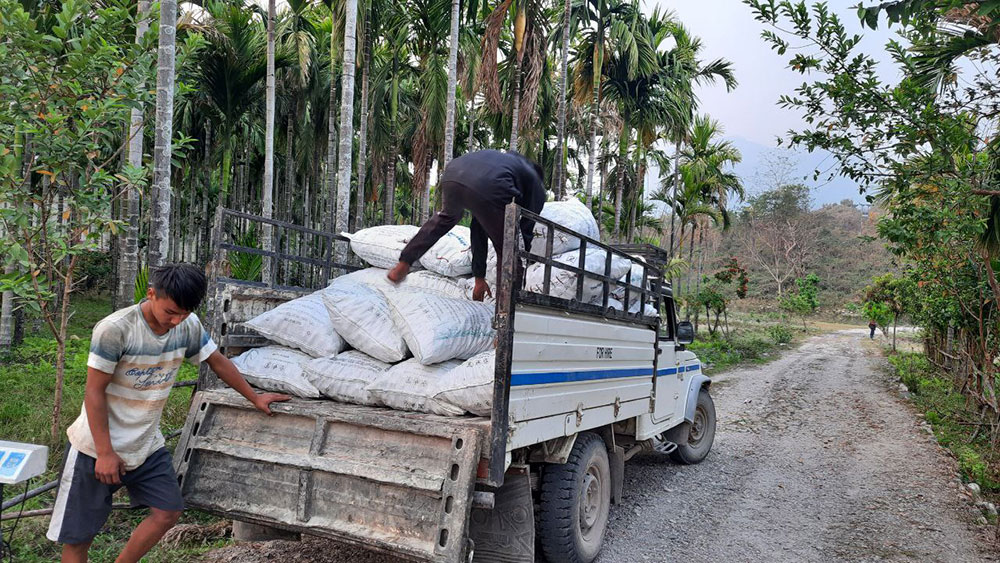Choki Wangmo | Tsirang
With the Lhamoizingkha border checkpost sealed, areca nut exporters from the region are using the Lhamoidzingkha-Gelephu route to export the cash crop.
From March 9 to 14, the drungkhag taskforce had facilitated the transport of 26 truckloads of areca nut to Gelephu via India and about 12 truckloads to Phuentsholing through the internal route.
“We could facilitate transportation of goods within Bhutan via India,” said Drungpa Kinley Dorji.
A local trader, Migma Wangdi Sherpa, said that in the past, they used to sell produce to Kumargram in West Bengal but starting last year, they had to export to Assam at an increased cost of transportation. “We heard that the former route was seasonal and was particularly used for mandarin export.”
He said that last year the government paid them transportation charges but not this year. During normal times, exporting a DCM truckload of nuts to Kumargram cost Nu 1,000. For the same load, the exporters are now paying Nu 15,000 to transport goods to Gelephu.
Assam is four hours away from Lhamoidzingkha.
An exporter, Amber Gurung, said that there were no concrete reasons as to why the border checkpost was sealed.
He said that areca nut yield this year was good and the price was also attractive. Most of the residents have opted areca nut plantation as other crops are affected by human-wildlife-conflict.
“Boars and elephants cause havoc in the area,” he said.
For 100 kilograms of areca nuts, people get Nu 4,500.
Dagana’s National Council member Surjaman Thapa who has been helping exporters along with the drungkhag taskforce said that issue started emerging since last year and to address it, there was a need to open a formal trade route via Lhamoidzingkha to India.
“The government needs to look into the matter, or else, exporters will continue to face challenges. Transporting goods via gelephu is costly,” he added.


